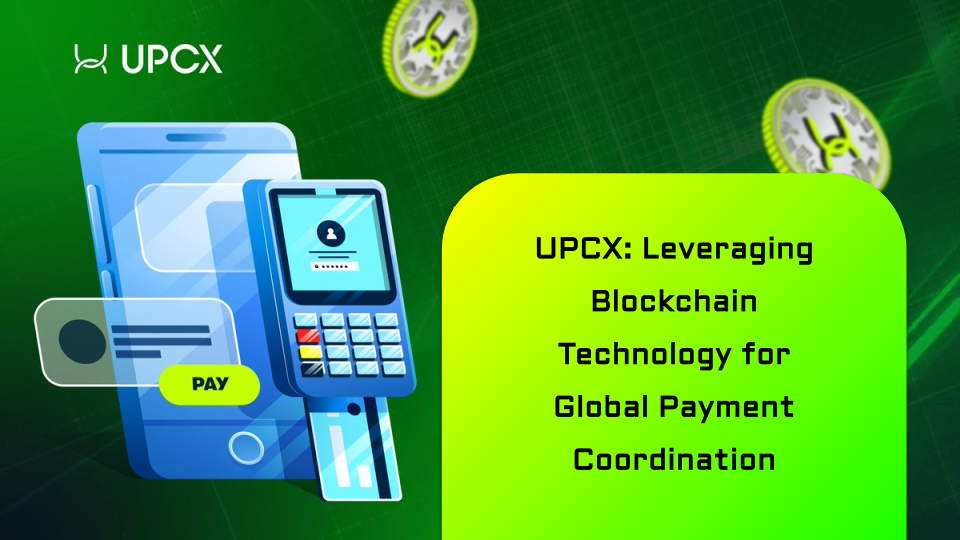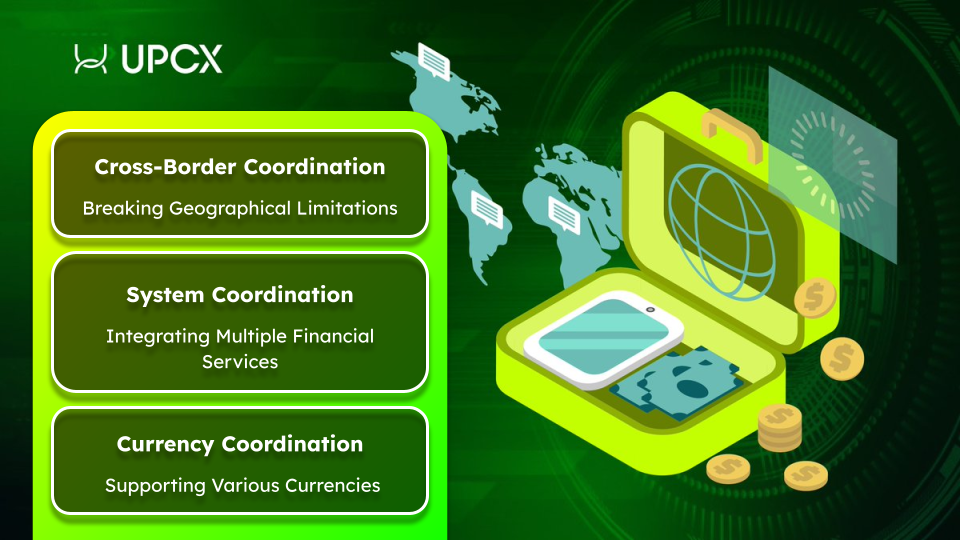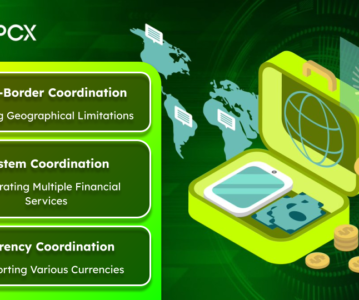The demand for cross-border payments and remittance services is continuously increasing in today’s globalized world. However, traditional financial systems often face high transaction fees, slow processing times, and complex regulatory requirements. UPCX has emerged to address these pain points by utilizing blockchain technology, offering a fully integrated, efficient, and multi-functional global payment solution.

UPCX is not just a payment system but a financial super app aimed at achieving seamless payment and remittance services worldwide through standardization and transparency. Its core concept is derived from “coordinating global payments,” similar to the standardizing role of “Coordinated Universal Time (UTC).” UPC (Universal Payment Coordination), the native token of UPCX, is the embodiment of this concept, dedicated to realizing payment standardization and transparency on a global scale.
According to reports, UPCX will launch its testnet in August 2024. In this article, we explore how UPCX breaks down geographical and financial system barriers through cross-border coordination, system coordination, and currency coordination to create a truly globalized payment ecosystem. We will also analyze the importance of UPC tokens in the UPCX ecosystem and their unique distribution and release strategy, ensuring the project’s long-term growth and market stability.
Cross-Border Coordination: Breaking Geographical Limitations
UPCX adopts “Graphene” as its underlying technology, a highly scalable blockchain technology that enables seamless transactions across different geographical and regulatory environments on a unified platform. Graphene technology’s high customizability and scalability allow UPCX to adapt to various financial environments and regulations, achieving a genuine global payment solution.
System Coordination: Integrating Multiple Financial Services
UPCX, with its innovative thinking, proposes a blockchain payment+ model super app, enabling interoperability among different financial systems such as banks, payment gateways, and electronic wallets on the UPCX platform. This design makes UPCX not just a payment system but also a super application integrating various financial services. Whether in retail and e-commerce platforms across multiple countries or between merchants and consumers, UPCX provides a convenient and secure payment experience.
Currency Coordination: Supporting Various Currencies
UPCX utilizes the COSMOS protocol to build cross-chain bridges that support various currencies. The COSMOS protocol is a framework that promotes cross-chain transactions, allowing different blockchain networks to connect and interact. This enables UPCX to support transactions in various currencies, whether traditional fiat or cryptocurrency. Users, regardless of their location or currency, can transact on the UPCX platform, realizing a proper global payment solution.

The Importance of UPC and Its Unique Distribution Strategy
UPC plays a vital role in the UPCX ecosystem, like the blood of the main chain, flowing and maintaining the entire system’s operation. It is responsible for ensuring network security, supporting smart contracts, and paying transaction fees. As the UPCX ecosystem continues to grow and develop, the demand for UPC is expected to increase steadily.
The design of UPC empowers users with control over the platform, achieving true financial democratization. UPC holders can participate in deciding the development direction of UPCX, such as changing protocol parameters or proposing new features, and share in the economic benefits of UPCX, such as dividends and interest income. All of this is done on the blockchain, providing high transparency. This design enables UPCX to be on par with credit card and mobile payment systems regarding performance, scalability, and settlement integrity.
According to the distribution and issuance schedule, the total supply of UPC tokens in UPCX is 780,000,000 UPC. The allocation method and release schedule are carefully designed to ensure the project’s long-term growth and sustainability. The main token allocations are as follows: 50% for the ecosystem, 20% for rewards, 8% for development, 10% for marketing, 5% for the team, and 7% for early supporters. This allocation ensures that the funding needs of various important areas are met while avoiding large-scale one-time token releases that may cause market volatility.
UPCX adopts a phased token release strategy to avoid significant selling pressure in the market. For example, the ecosystem tokens will be gradually released over 50 years, recommendation and funding rewards will be allocated using the straight-line method, and development and marketing expenses will be released in stages. This long-term, phased-release plan smooths out market supply, avoiding oversupply caused by many tokens flooding the market in the short term, thus suppressing sharp price fluctuations. Moreover, stable market activity funds and a long-term incentive mechanism for witnesses and speakers ensure token holders’ continued support and confidence in the project, contributing to token price stability.
Conclusion
UPCX’s vision is to become a payment platform and build a globalized financial ecosystem that breaks down geographical and financial system barriers through standardization and transparency, achieving true global payment coordination. With the launch of the testnet in August 2024, UPCX is taking a solid step towards this vision. In the future, with the official launch of the mainnet, UPCX will continue to drive financial innovation, promote the transformation of global payment and remittance services, and provide users with a more convenient, secure, and efficient payment experience.
